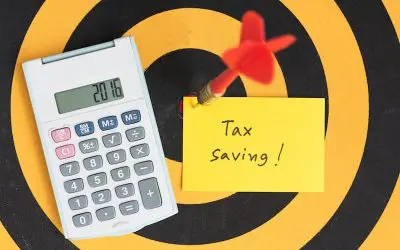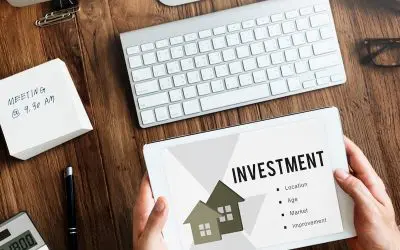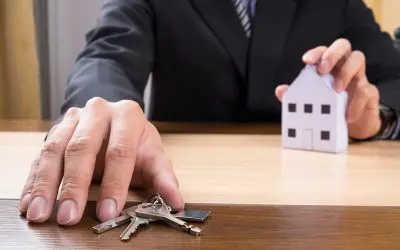If you’ve ever bought a home before, you know that it is usually a multi-step process that involves a lot of details and decision-making. When you are buying a home as your primary residence, there are certain things you need to take into consideration to ensure it is the right place for you. However, when you’re buying a property that someone else is going to be living in, it’s a whole different story. Buying a personal property to live in and buying property to invest in are similar in some ways, and very different in others. We’ve put together a complete guide to buying investment property so that whether you’ve got a growing portfolio or are just getting started, you can step into the investment journey with confidence.
Why Invest In Real Estate?
Real estate investing is a great long-term investment strategy that has many benefits. Real estate investing is a way to generate a source of passive income, meaning you do the work once and then the money keeps rolling in. Of course, some properties require more work (and capital) up front than others. The idea is to find a property at or below market value, give it a little (or a lot) of TLC, and rent it out to tenants who will contribute to the mortgage payment each month. Many tax advantages come with investing in real estate, which is another reason many investors choose this strategy overstocks or other investment options.
How To Buy Investment Property
Now that you understand the why, you need to know where to buy an investment property and maybe more importantly, how to buy investment property. When it comes to the “how” here’s what you need to know.

The Down Payment
For many novice investors, the idea of saving 20% of the total price of the home as a down payment can seem daunting. However, more and more investors are discovering the secrets to buying an investment property with no money down. We actually covered this in our recent buying a home without a large down payment podcast. Although having the 20% to put down will save you money in the long run, if you don’t have it it’s not the end of the world. One popular strategy is using home equity to buy an investment property, but there are many other ways that you can achieve your dreams of buying an investment property without drowning your savings. There are many “guides” online instructing you on easy ways to get rich quick, and trying to tell you how to buy a home with no money down or credit. Make sure you are getting your information from a credible source when you’re trying to figure out how to buy your first investment property. Deals that seem too good to be true usually are.
The Location
The most important factor when buying an investment property to rent is location. You could find a great deal, work your DIY magic to make it the nicest home on the block, but if it’s in a bad location, you’re going to have a hard time renting it out. There are many factors to consider choosing the best place to buy investment property. Things like crime rates, school districts, location to conveniences, neighborhood upkeep and HOAs and more are important to consider. If you think you’ve found a great deal but you aren’t sure about the neighborhood, go with your gut. You can change almost everything else about an investment property, but if the location isn’t desirable to tenants, you’re going to be paying for an empty house.
The Numbers
Investing in real estate involves a lot of emotions, but your final decisions should be based on the facts and figures, not on how “cool” the house is or how you would love to live there. There are certain things you can know for sure when it comes to the numbers associated with buying an investment property, such as the down payment, mortgage interest rate, and your monthly payments. However, there will be other areas where you will have to make educated guesses, such as how much revenue you’ll generate each month, how much you’ll pay in repairs and management fees, capital appreciation, property taxes and premiums, and risk factors in the area. It’s important to research all of these issues, but be careful not to fall into analysis paralysis.

Build A Team
If you’ve been asking yourself “should I buy an investment property?” the first step is realizing that you can’t do it alone. Your success or failure in real estate investing has a lot to do with the people you surround yourself with. You will need to build a team of industry professionals who can help you in a variety of areas related to investing. You will need to decide if you’re going to manage the property on your own or hire a management team to take care of the daily responsibilities on your own. You will need a numbers person if accounting and spreadsheets and calculations aren’t your thing. If you’re not tech savvy or confident in your DIY skills, you’ll need to find experts in this area to help your investments run smoothly.
Start Small
You probably know someone who has made a lot of money investing in real estate. And more than likely, you want to be someone who has made a lot of money investing in real estate. But the millionaire investors you hear about didn’t wake up one day and buy 50 properties and see overnight success. They started with small, affordable investments that offered very little risk. As each property was a success, they purchased more until they eventually owned multiple properties that were generating a significant amount of passive income each month. Start with small single-family homes, then move up to multi-family properties. Being patient, practicing delayed gratification, and knowing when to analyze and when to act are all small steps that will lead to a big payoff.
Don’t Over-Improve
If you’re an avid DIYer, the idea of gutting a home and completely upgrading it may sound exciting. But overpaying for improvements and upgrades outside of the property class will just end up costing you. Depending on the property class of the home you are buying, there will probably be upgrades and improvements needed to market to high-quality tenants. But don’t go crazy. Focus on bathrooms and kitchens, as these are typical “deal breaker” issues for renters.
Take The First Step
One of the biggest mistakes new investors make is not making any moves at all. They let fear and excuses get in the way of pursuing their dreams of real estate investing. You don’t need a college degree to invest. You don’t need a lot of experience or all of the answers. You simply need a little cash, some basic education and a whole lot of determination and drive. Connect with people who have gone before you and learn from their experiences. Soak in all of the information you can, via blogs and books, websites and podcasts. Figure out your first step and take it. And then take the one after that. Before you know it, you’ll be living the lifestyle you’ve always dreamed of thanks to your real estate investments
Have anything to add to this list to help fellow investors on their journey? We’d love to hear your tips, tricks, and secrets in the comment section below!




